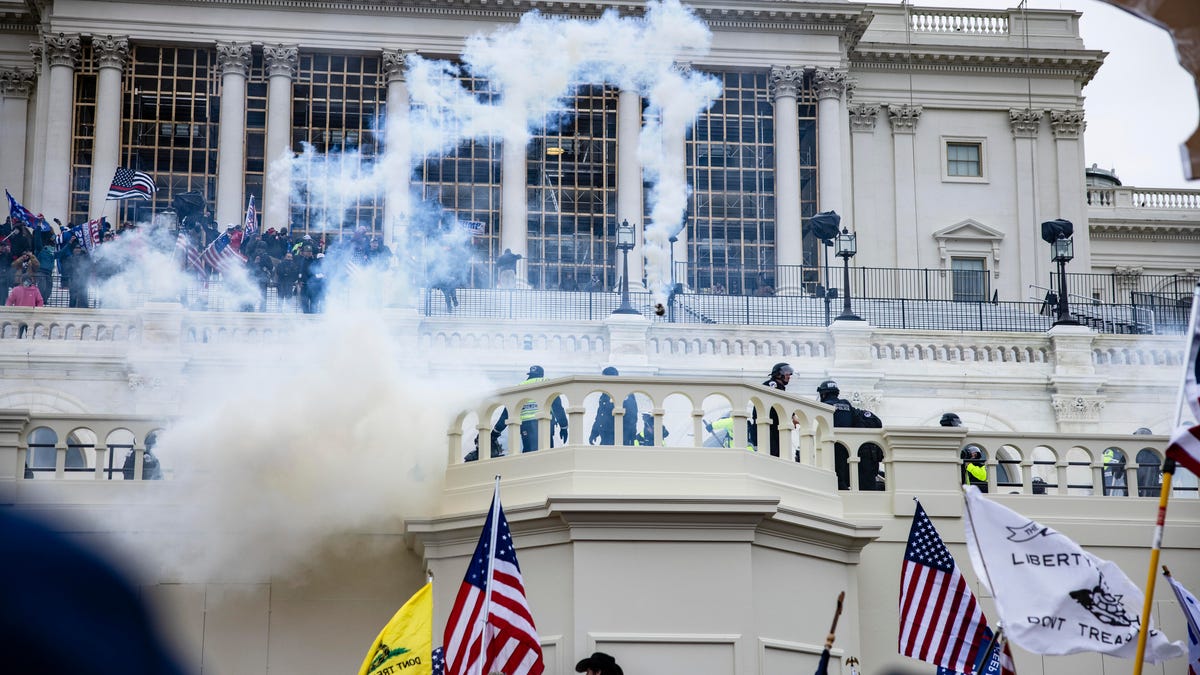Trump calls for 'no violence' as more armed protests reportedly planned for US, state capitols
FBI and Capitol Police are reportedly on alert for more armed demonstrations ahead of Joe Biden's inauguration. President Donald Trump said he doesn't support "law breaking."

More protests are being planned, according to the FBI.
President Donald Trump on Wednesday released a video statement via The White House Twitter account saying he condemns the violence caused by a mob of his supporters who stormed the US Capitol last week. The message comes as reports say the US could see more armed protests across the country in the lead-up to President-elect Joe Biden's inauguration next week.
"Violence and vandalism have absolutely no place in our country," Trump said. "Mob violence goes against everything I believe in and everything our movement stands for. No true supporter of mine could ever endorse political violence."
— The White House (@WhiteHouse) January 13, 2021
An internal FBI bulletin obtained by ABC News warns that another armed protest could take place at the US Capitol.
"Armed protests are being planned at all 50 state capitols from 16 January through at least 20 January, and at the US Capitol from 17 January through 20 January," ABC News correspondent Aaron Katersky tweeted about the FBI bulletin on Monday.
"Armed protests are being planned at all 50 state capitols from 16 January through at least 20 January, and at the US Capitol from 17 January through 20 January," according to an FBI bulletin obtained by @ABC
— Aaron Katersky (@AaronKatersky) January 11, 2021
Officials from the FBI and DOJ provided an update on the Capitol Hill attack investigations on Tuesday. So far, 100,00 pieces of evidence have been collected in regards to the riots.
The FBI said that while it's standard practice not to comment on current investigations, it can say that it's "supporting our state, local and federal law enforcement partners with maintaining public safety in the communities we serve."
See also
"Our efforts are focused on identifying, investigating and disrupting individuals that are inciting violence and engaging in criminal activity," the FBI told CNET in an emailed statement. "We are gathering information to identify any potential threats ... our focus is not on peaceful protesters, but on those threatening their safety and the safety of other citizens with violence and destruction of property."
Capitol Police on Monday briefed lawmakers about potential upcoming demonstrations, according to Huffpost's report on a private call between the officers and House Democrats. Trump also said in his video message that he's been briefed by the US Secret Service about the potential threats. Federal agencies have been directed to "use all necessary resources to maintain order," he added, and thousands of National Guard members will work to secure Washington, DC.
"There must be no violence, no law breaking and no vandalism of any kind," the president said.
Michigan Attorney General Dana Nessel tweeted her concerns on Tuesday, saying the state capitol "is not safe."
My job is not to provide state employees & residents or other visitors to our Capitol with a false sense of security, especially given the current state of affairs in Michigan and around the nation.
— Dana Nessel (@dananessel) January 12, 2021
I repeat-the Michigan Capitol is not safe.
Twitter , which permanently banned Trump's account last week, noted that plans for future protests were circulating on and off Twitter. The social media site specifically noted proposed secondary attacks on the US Capitol and state capitol buildings on Jan. 17.
Social media companies have cracked down on Trump after a mob of his supporters broke into the Capitol on Jan. 6, leaving five people dead and forcing legislators to flee as they were in the middle of certifying the results of the 2020 election. In addition to the Twitter ban, Facebook blocked Trump indefinitely. Since the deadly attack, lawmakers have been calling for Trump's removal from office by way of the 25th Amendment, impeachment or voluntary resignation.
CNET's Abrar Al-Heeti contributed to this report.

